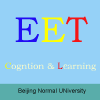-
Gagne's nine events of instruction
普通类 -
- 支持
- 批判
- 提问
- 解释
- 补充
- 删除
-
-
introduction

Robert Gagne
1916-presentROBERT GAGNE is best known for his Nine Events of Instruction. He was born in 1916 in North Andover, Massachusetts. In 1937, he earned his A.B. from Yale University. After receiving his Ph.D. from Brown University in psychology in 1940, he taught at Connecticut College for Women and Pennsylvania State University.
In 1949, he became the research director for the perceptual and motor skills laboratory of the United States Air Force and studied military training problems. He also served as a consultant to the United States Department of Defense. It was during this time that he began to develop ideas known as the "conditions of learning".
Gagne believes that effective instruction should reach beyond traditional learning theories. He supports cumulative teaching that transitions from simple to complex skills. This hierarchical framework is widely used in many instructional environments.
For many decades, he has contributed greatly to the field of education and instructional design. Gagne has written several books about his learning theory, of which the most well-known is The Conditions of Learning (Gagne, 1965). Currently, he is a professor in the Department of Educational Research at Florida State University where he has taught since 1969.-
Nine Events of Instruction
1. Gain Attention
Pique the learners' interest in the subject.
Example: Show a s'more. Talk about how delicious it is.
2. Inform Learner of Objective
Let the learners know what they will be learning.
Example: Today, we will learn how to make a s'more.
Gagne's Nine Events apply to traditional teacher-led settings.
3. Recall Prior Knowledge
Get the learners to think about what they already know.
Example: Has anyone ever had a s'more? Where? When? What is it made of?
4. Present Material
Teach the topic.
Example: Show learners how to make a s'more.
5. Provide Guided Learning
Help the learners follow along as the topic is presented.
Example: Provide picture posters of steps involved in making a s'more.
6. Elicit Performance
Ask learners to do what they have been taught.
Example: Give learners ingredients to make their own s'more.
Gagne's Nine Events also apply to distance learning environments.
7. Provide Feedback
Inform learners of their performance.
Example: Circulate around the classroom to observe and help learners.
8. Assess Performance
Evaluate learners on their knowledge of the topic.
Example: Examine learners' s'mores. If correctly made, they get to eat them.
9. Enhance Retention and Transfer
Aid learners in remembering and applying the new skill.
Example: Have learners make s'mores for a snack during the week or a class field trip.-
Practice
Use Gagne's Nine Events of Instruction to design a lesson that teaches a child how to tie his/her shoe. What would you do?
-
Author
Lori Killpatrick
Graduate Student
San Diego State University -
-
- 标签:
- nine
- instruction
- learners
- learning
- gagne
- more.
- events
- example
-
加入的知识群:



学习元评论 (0条)
聪明如你,不妨在这 发表你的看法与心得 ~